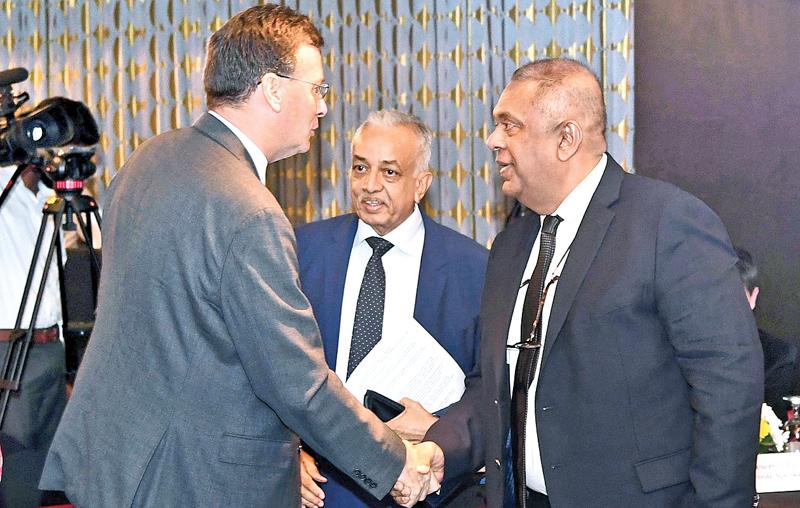
Blockchain will no doubt disrupt traditional trade finance and can be a major boost for trade. Early movers will have a significant advantage – and I am confident that Sri Lanka’s financial sector is taking the message on board – Mangala Samaraweera
Sri Lanka is in the process of implementing a National Single Window for trade facilitation with the support of development partners, including Australia. This is to enable traders to fulfill all necessary procedures under one roof, Minister of Finance and Mass Media Mangala Samaraweera said at the Conference on ‘Applying New Technology to Make Sri Lanka’s International Trade More Efficient and Inclusive’ at the Cinnamon Grand Hotel last Monday.
In an era when Sri Lanka is aspiring to become a truly attractive destination for efficiency seeking export oriented FDI, and an Indian Ocean trading hub, it is essential that the country streamlines its trade processes to ensure efficiency, transparency, and integrity in a rule based environment.
Emphasising this, the Minister said, “We are negotiating three important trade agreements with India, China, and Singapore to gain further market access for our exports. When this process concludes in a fruitful manner, our exports will have duty free access to 2.5 billion people in this region.”
Excerpts from his speech:
“The future of trade facilitation is however in the application of modern technology. I am happy to note that there will be extensive sessions on Blockchain technology at this Conference. This technology has the potential to revolutionize trade finance by drastically cutting down the time taken for transactions, reduce the costs of intermediation, whilst ensuring security and process integrity.”
“Blockchain will no doubt disrupt traditional trade finance and can be a major boost for trade. Early movers will have a significant advantage – and I am confident that Sri Lanka’s financial sector is taking the message on board.
“The implications of such technology go beyond private traders, and have important potential benefits for border agencies. Blockchain technology can enable Customs to audit supply chains in real time, trace the provenance of suspicious transactions, and identify problematic cargo in advance.
“The application of cutting edge technology in our key institutions is a major focus of the Finance Ministry. We have this year commenced the implementation of RAMIS at the Inland Revenue Department which has already yielded good results in terms of revenue administration and collection efficiency.”
“We will look at similar applications at the Departments of Excise and Customs as well. Initial steps have been taken by enabling electronic payments at Customs and automated scanning technology.
I am very keen to see Sri Lanka’s Customs step up its role as a trade facilitation agency, whilst of course ensuring a healthy contribution to our treasury coffers.”
“We are also taking stock of outdated and archaic legislations, including the Customs ordinance that was introduced in 1856, and the Excise Act of 1912, to enable those institutions to effectively function in the contemporary global trading environment. Since financial transaction risk is a major barrier to SME access to markets, Blockchain technology can go a long way towards improving SME export potential.
“In addition to a trading hub, Sri Lanka also aims to be a financial hub, with the new Colombo International Financial Centre being positioned as a location for investment in cutting edge innovative finance. This confluence of trade and finance makes Sri Lanka an ideal candidate to lead the way in terms of trade finance technology and other tech innovations for trade and logistics.”
